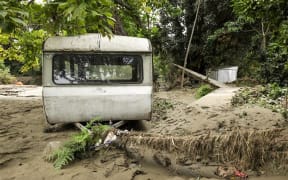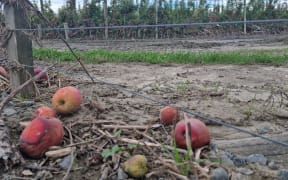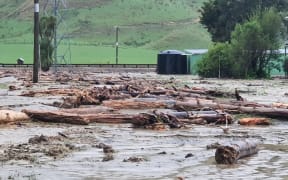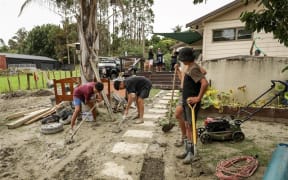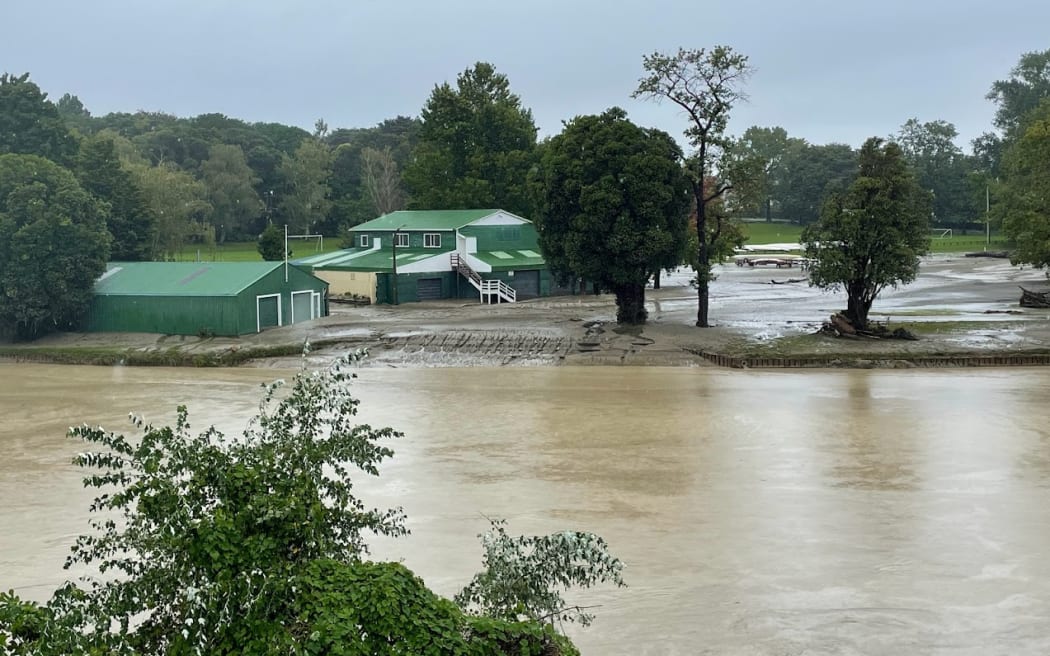
The aftermath of Cyclone Gabrielle seen near the Waimata River in Gisborne, on 15 February 2023. Photo: RNZ / Kate Green
Te Tai Rāwhiti is likely in for a hot, dry spring after months of wet weather - a welcome relief for locals.
Niwa's latest seasonal outlook shows rainfall, soil moisture and river levels are likely to be below average.
Gisborne District Council emergency manager Ben Green said consistent wet weather stalled infrastructure projects and delayed repairs following Cyclone Gabrielle.
But it went back further than that, starting with "the summer that wasn't".
"We had a whole capital works programme, particularly for roading networks that didn't obviously take place with the very wet summer," Green said.
Good weather meant repairs would go ahead as planned, but it could also damage the ground in different ways.
"In terms of soil geology, really what tends to happen is you get that excessive drying that takes place, and tends to fissure and crack the ground, and probably increases somewhat the risk where you've got quite fragile soil and slopes."
He said people should look at having their own water supplies, such as rainwater collection tanks, even in town.
Horticulture company LeaderBrand head Richard Burke said a dry spell would be a reason to celebrate: "I'd go down and buy a box of beer, and sit down, and drink it."
He said the constant rain had replenished water storage supplies, meaning the region might be better equipped to handle a dry spell.
"For our business, we operate much better in dry conditions," he said.
"We can plan what we want to do, we can manage things a lot better, we have irrigation available for the crops that need it.
"I'm not saying that it's all great [if] we have no rain, but a dry period for us is something that we would really look forward to."
Niwa scientist Chris Brandolino said many places in the North Island had received about a year's worth of rain in six months, so the warm dry weather would be a welcome relief.
"We all could use a break from the rain, no doubt about it, but unfortunately what may happen is that we could see too much of a good thing."
For the forestry industry, its sweet spot would be somewhere in between.
Eastland Wood Council member and Women in Forestry board member Erika Herries said dry weather would improve roading conditions.
"Those big machines have big tracks, and they leave a bit of a footprint, especially if it's been very, very wet, like what we've had."
But hot, dry conditions could increase fire risk, and would cause a change in work patterns for forestry crews.
"We'll have fire training for our guys up in the forest, and you have earlier start times so you're not working when it's really, really hot."
So while a dry spell would be cause for celebration for many, others would be crossing their fingers for all things in moderation.

